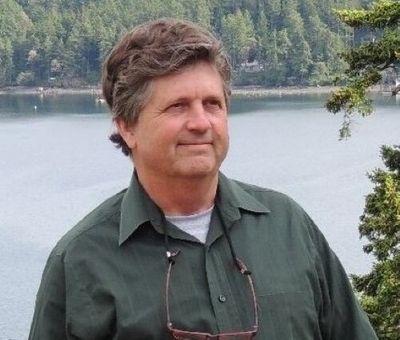Washington wildlife commissioner resigns citing ‘politicized quagmire’

One of Washington’s newest wildlife commissioners resigned Monday, saying in his resignation letter that the “commission is currently stuck in a politicized quagmire.”
Fred Koontz was appointed on Jan. 5 by Gov. Jay Inslee to a six-year term that was set to expire on Dec. 31, 2026. The Washington Fish and Wildlife Commission is a panel appointed by the governor that sets policy for the Washington Department of Fish and Wildlife.
Koontz, who has a doctorate in zoology, worked for 15 years at the Wildlife Conservation Society before retiring in 2017. He occupied one of the commission’s three “at-large” seats. There are now two vacancies on the nine-person commission. Inslee will need to fill an “at-large” position and an Eastern Washington seat.
Koontz joined the commission in hopes of guiding state policy to “safeguard the state’s biodiversity for current and future generations,” he wrote in his resignation letter. However, commission dynamics convinced him that he could not do that work.
“We have largely lost the ability to have civil public conversations,” he wrote. “This is not the kind of environment in which I thrive. I hope that your future appointments to the Commission can be better politicians than me, as I am a conservation biologist at heart.”
Koontz declined to comment, instead sharing a copy of his resignation letter.
Marie Neumiller, the executive director of the Inland Northwest Wildlife Council, said she wished Koontz the best and, despite disagreeing with him on a number of issues, always found him kind and respectful. Neumiller hopes Gov. Inslee appoints someone from Eastern Washington to the at-large seat. The other two at-large commissioners live on the west side of the state.
“Technically that’s well within the rules to do that,” she said. “I just don’t think that’s the best option. Eastern Washington makes up two-thirds of the state’s land mass.”
Some hunters and hunting organizations believed Koontz’s appointment nearly a year ago, alongside Jefferson County resident Lorna Smith, threw the commission off balance and disenfranchised hunting.
However, his experience in conservation biology was praised by many conservation and environmental groups.
“Fred is a champion for wildlife but could not stand the toxic and divisive culture of the WDFW Commission and the department – what a total shame and what a huge loss for Washington wildlife,” said Spokane-based Chris Bachman, the Wildlife and Wildlands director for the Kettle Range Conservation group. “ We lost a champion today and it could’ve been prevented with simple agency messaging about what the commission process is, and isn’t. The Commission is in place to represent all Washingtonians, hunters and nonhunters alike.”
Earlier this year Koontz and Smith spearheaded an effort to define what conservation means for WDFW. In that draft document Koontz said he included language to “broaden the mission” of the department and argued that conservation has “been conflated with purpose and value,” a way of thinking about animals and ecosystems that needs to change in his opinion. This concerned some hunters and traditional conservation groups, who worried that the commission was straying from the North American Model of Wildlife Conservation, a concept that suggests government should regulate wildlife as a public resource to ensure long-term survival of populations.
During Koontz’s tenure the commission considered a number of controversial, and politically heated topics, including most recently a spring bear hunting season that was suspended despite state wildlife biologists asking the commission to reapprove the hunt. Koontz was one of the four commissioners who voted against the hunt and questioned some of the data presented by department biologists. That suspicion of agency biologists was criticized by Eastern Washington commissioner Kim Thorburn, a frequent critic of Koontz’s positions.
And this month Koontz again angered many hunters after suggesting that the Blue Mountains elk herd management objective of 5,500 was too high. The herd has shrunk from as many as 5,700 animals as recently as 2016 to roughly 3,600 this year and is 36 percent below the population objective, as reported by Northwest Sportsman’s Andy Walgamott.
“This may well be a case where the socially accepted number is higher than the biological number, and this is especially possible when we start emphasizing more ecosystem management rather than setting a specific species number,” Koontz said during a Dec. 2 commission meeting.
Despite questioning WDFW’s science and management, Koontz said he remained “inspired” by agency staff.
“While I questioned the Department’s leadership on a number of their decisions, please know that I was inspired by the deep dedication and character of the Department’s 1,900 employees,” Koontz wrote in his resignation letter. “Finally, listening to all sides of the public testimonies at Commission meetings also is a sign that the public cares.”
Commission appointees are subject to confirmation by the state Senate, which will reconvene in January 2022. However, members are official upon appointment and serve as voting members on the Commission while awaiting Senate confirmation.
“We appreciate Fred’s engagement and curious mind on the Commission,” said Fish and Wildlife Commission Chair Larry Carpenter in a statement. “He encouraged us to be bold in our mission and we enjoyed his passion for biodiversity conservation.”